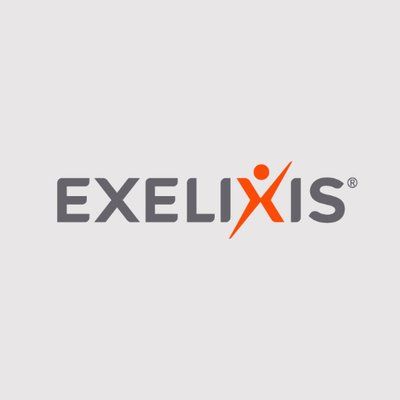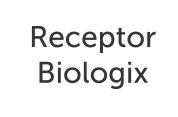预约演示
更新于:2025-05-07
HER2 x HER3 x HER4 x EGFR
更新于:2025-05-07
关联
4
项与 HER2 x HER3 x HER4 x EGFR 相关的药物作用机制 EGFR拮抗剂 [+3] |
在研机构 |
原研机构 |
在研适应症 |
非在研适应症- |
最高研发阶段临床申请批准 |
首次获批国家/地区- |
首次获批日期1800-01-20 |
作用机制 EGFR拮抗剂 [+5] |
在研机构- |
原研机构 |
在研适应症- |
最高研发阶段终止 |
首次获批国家/地区- |
首次获批日期1800-01-20 |
作用机制 EGFR拮抗剂 [+3] |
在研机构- |
在研适应症- |
非在研适应症 |
最高研发阶段终止 |
首次获批国家/地区- |
首次获批日期1800-01-20 |
14
项与 HER2 x HER3 x HER4 x EGFR 相关的临床试验NCT03203642
A Double-blind Randomized Parallel Group Study of the Efficacy and Safety of Tesevatinib in Subjects With Autosomal Dominant Polycystic Kidney Disease
The goal of the study was to compare and evaluate safety and efficacy of tesevatinib 50 milligrams (mg) versus placebo in participants with autosomal dominant polycystic kidney disease (ADPKD).
开始日期2017-10-12 |
申办/合作机构 |
NCT03096080
A Phase 1, Safety, Pharmacokinetic, Single Ascending Dose Study of Tesevatinib in Pediatric Subjects With Autosomal Recessive Polycystic Kidney Disease (ARPKD)
This study evaluates safety and tolerability of a single ascending dose of a tesevatinib liquid formulation administered to pediatric subjects with ARPKD.
开始日期2017-08-24 |
申办/合作机构 |
NCT02844439
A Phase 2, Multicenter Study of Tesevatinib Monotherapy in Patients With Recurrent Glioblastoma
This is a multicenter, Phase 2 study to assess the activity of tesevatinib in patients with recurrent glioblastoma.
开始日期2016-06-01 |
申办/合作机构 |
100 项与 HER2 x HER3 x HER4 x EGFR 相关的临床结果
登录后查看更多信息
100 项与 HER2 x HER3 x HER4 x EGFR 相关的转化医学
登录后查看更多信息
0 项与 HER2 x HER3 x HER4 x EGFR 相关的专利(医药)
登录后查看更多信息
644
项与 HER2 x HER3 x HER4 x EGFR 相关的文献(医药)2025-06-01·Biomedicine & Pharmacotherapy
Neratinib and metformin: A novel therapeutic approach against HER2-Positive Breast Cancer
Article
作者: Vranic, Semir ; Moustafa, Ala-Eddin Al ; Al-Thawadi, Hamda ; Hassan, Arij Fouzat ; Saeed, Sumayyah ; Mateo, Jericha Miles ; Ulamec, Monika ; Kheraldine, Hadeel ; Peric-Balja, Melita ; Merhi, Maysaloun
2025-05-01·Nature Reviews Clinical Oncology
Emerging importance of HER3 in tumorigenesis and cancer therapy
Review
作者: Garrett, Joan T ; Yu, Helena ; Feroz, Wasim ; Tendler, Salomon ; Kilroy, Mary Kate
2025-03-01·Virchows Archiv
ERBB2/ERBB3-mutated S100/SOX10-positive uterine sarcoma: something new
Article
作者: Shi, Wangpan J ; Fadare, Oluwole
59
项与 HER2 x HER3 x HER4 x EGFR 相关的新闻(医药)2025-03-31
·米内网
精彩内容3月30日,恒瑞医药发布2024年年度报告,2024年实现营业收入279.85亿元,同比增22.63%,归属于上市公司股东的净利润63.37亿元,同比增47.28%,归属于上市公司股东的扣非净利润61.78亿元,同比增49.18%,公司业绩显著增长,营收、净利均创新高。报告分析,恒瑞医药创新成果持续获批,临床价值凸显,驱动收入增长。2024年创新药销售收入达138.92亿元(含税,不含对外许可收入),同比增30.60%,创新药销售收入占公司总销售收入(不含对外许可收入)一半以上。同时,创新药出海取得成效,成为业绩增长第二引擎,报告期内,公司收到德国Merck Healthcare 1.6亿欧元对外许可首付款以及美国Kailera Therapeutics 1.0亿美元对外许可首付款等许可合作对价,确认为收入,利润增加较多。为保证创新产出,恒瑞持续加大创新力度,报告期内累计研发投入82.28亿元,创历史新高,其中费用化研发投入65.83亿元,研发投入占销售收入比重达到29.40%,至今恒瑞累计研发投入已超440亿元。申万宏源证券分析认为:恒瑞医药始终将创新和国际化作为战略发展目标,持续坚持高比例研发投入,创新药重回快速增长轨道,创新药BD授权交易为公司贡献了新的利润增长点,同时受一批国际领先新技术平台驱动,持续进行创新升级,公司稳健发展,值得期待。新药新适应症持续获批,驱动业绩显著增长在持续高强度研发投入的驱动下,恒瑞医药优质创新成果持续获批,在研管线快速推进,创新发展动能强劲。2024年至今恒瑞共有9项创新成果获批上市,其中4款1类创新药富马酸泰吉利定、夫那奇珠单抗、瑞卡西单抗、硫酸艾玛昔替尼获批上市,涵盖神经科学、自免、心血管疾病等领域,目前恒瑞已在国内获批上市19款新分子实体药物(1类创新药)、4款其他创新药(2类新药)。新适应获批方面,氟唑帕利2个新适应症(用于晚期卵巢癌一线含铂化疗后维持治疗;单药或联合甲磺酸阿帕替尼用于伴有胚系BRCA突变的HER2阴性乳腺癌患者的治疗)获批上市。阿帕替尼的第4个适应症(联合氟唑帕利用于伴有胚系BRCA突变的HER2阴性乳腺癌的治疗)与恒格列净的第2个适应症(与盐酸二甲双胍和磷酸瑞格列汀联合使用治疗2型糖尿病)获批上市。富马酸泰吉利定注射液获批用于治疗术后中重度疼痛。在研管线加速推进,截至目前恒瑞共有18项上市申请(含新增适应症)获NMPA受理,90多个自主创新产品正在临床开发,约400项临床试验在国内外开展。报告期内共取得创新药临床批件112个,共有24项临床推进至Ⅲ期,27项临床推进至Ⅱ期,26项创新产品首次推进至临床Ⅰ期。共有9项临床试验被纳入突破性治疗品种名单,4个品种被纳入优先审评品种名单,3项临床试验被纳入美国FDA快速通道资格认定,1项临床试验获得EMA孤儿药资格认证。专利申请和维持方面,截至2024年底,公司于大中华区累计申请发明专利2609件,PCT专利704件,拥有大中华区授权发明专利1084件,欧美日等国外授权专利753件。未来三年预计47项创新成果获批上市,收获可期恒瑞医药管线储备丰富,发展后劲足。特别值得关注的是,此次年报中披露了未来三年预计获批上市的47项创新成果,覆盖肿瘤、代谢及心血管疾病、免疫和呼吸系统疾病等治疗领域,其中包括HER2 ADC、GLP-1药物等重磅产品。可见,恒瑞创新药研发已形成了上市一批、临床一批、开发一批的良性循环。根据公告,2025年预计上市项目11项,备受关注的明星产品HER2 ADC瑞康曲妥珠单抗(SHR-A1811)有望获批用于非小细胞肺癌,该产品已有8个适应症获国家药监局突破性疗法认定,另有6项Ⅲ期临床在研。此外,NK1/5-HT3双通道止吐复方制剂HR20013、干眼病产品SHR8058滴眼液,也有望造福患者健康;已上市产品中,中国首个自主研发JAK1抑制剂艾玛昔替尼(艾速达®)用于类风湿关节炎、特应性皮炎2个适应症,重组抗IL-17A人源化单克隆抗体夫那奇珠单抗(安达静®)用于强直性脊柱炎也有望获批,值得期待。2026年预计上市项目13项,另一款重磅产品PD-L1/TGF-βRⅡ双靶点融合蛋白瑞拉芙普-α(SHR-1701)有望获批胃癌适应症,经查询,目前国内外尚无同类产品获批上市,具备First-in-Class潜力。新型口服EZH2抑制剂SHR2554用于淋巴瘤,PD-1单抗和小分子TKI联合疗法卡瑞利珠单抗联合苹果酸法米替尼用于二线宫颈癌也有望上市。已上市产品中,中国首个自主研发的非肽类口服血小板生成素受体激动剂(TPO-RA)海曲泊帕乙醇胺(恒曲®)用于再生障碍性贫血、化疗引起的血小板减少症、儿童/青少年免疫性血小板减少症,中国首个自主研发的新型高选择性CDK4/6抑制剂羟乙磺酸达尔西利(艾瑞康®)用于HR+/HER2-乳腺癌辅助治疗,都有望进入临床应用。2027年预计上市项目23项,热门的GLP-1药物或将迎来上市,具备同类最佳潜力的GLP-1/GIP双受体激动剂HRS9531用于2型糖尿病和超重/肥胖2个适应症,口服小分子GLP-1受体激动剂HRS-7535用于2型糖尿病均有望获批。此外有望上市的还有:具备First-in-Class潜力的HER3 ADC创新药SHR-A2009用于非小细胞肺癌、URAT1抑制剂SHR4640用于痛风伴高尿酸血症。在已上市产品中,中国首个自主研发的抗HER1/HER2/HER4靶向药马来酸吡咯替尼片(艾瑞妮®)用于HER2阳性乳腺癌延长辅助治疗,艾玛昔替尼用于放射学阴性中轴型脊柱关节炎,有望进一步拓展应用。创新BD出海模式,国际化稳步推进恒瑞医药稳步推进国际化战略,坚持自主研发与开放合作并重,在内生发展的基础上着力加强国际合作。目前已实现13笔创新药海外授权合作,其中近三年对外授权8笔。公司将自主研发的Lp(a)抑制剂、DLL3 ADC、PARP1抑制剂等许可给包括默沙东、IDEAYA Biosciences、德国默克在内的多家海外药企。其中,2024年5月,公司将具有自主知识产权的GLP-1类创新药HRS-7535、HRS9531、HRS-4729许可给美国Kailera公司,首付款加里程碑付款累计可高达60亿美元,公司还取得美国Kailera公司19.9%的股权,创新了国内药企BD出海模式。国际临床试验稳步开展。目前恒瑞已在美国、欧洲、澳大利亚、日本及韩国等国家和地区启动超20项海外临床试验;SHR-A2009、SHR-A1912、SHR-A1921、SHR-A2102四款ADC创新药获得美国FDA快速通道资格认定。公司努力推动高质量医药产品惠及全球患者。目前公司产品已进入超40个国家,在欧美日获得包括注射剂、口服制剂和吸入性麻醉剂在内的20余个注册批件。报告期内,公司在美国获批上市3款首仿药品,分别为:他克莫司缓释胶囊、布比卡因脂质体注射液、注射用紫杉醇(白蛋白结合型),其中布比卡因脂质体注射液是该品种全球首仿药。同时,恒瑞创新实力持续赢得国际认可。报告期内已有与公司产品相关的386项重要研究成果相继在BMJ(英国医学杂志)、JAMA(美国医学会杂志)、Lancet Oncology(柳叶刀·肿瘤学)等全球顶级期刊发表,累计影响因子达2869.2分。其中,艾司氯胺酮产后抑郁预防研究结果发表在《英国医学杂志》,发表时影响因子达105.7分;卡瑞利珠单抗新辅助治疗三阴性乳腺癌的临床Ⅲ期关键研究成果发表在《美国医学会杂志》(JAMA),发表时影响因子达63.1分,该研究是JAMA创刊141年以来首次发表基于中国人群的乳腺癌原创新药研究。此外,公司超百项抗肿瘤创新研究成果被2024美国临床肿瘤学会(ASCO)年会、欧洲肿瘤内科学会(ESMO)大会、欧洲肺癌大会(ELCC)、世界肺癌大会(WCLC)等国际知名学术会议录用为口头报告/会议壁报;多项慢病产品研究亮相国际学术舞台,被美国血液学会(ASH)、美国肾脏病学会(ASN)、美国心脏病学会科学年会(ACC)、美国皮肤科学会年会(AAD)等国际会议录用为口头报告。持续优化运营管理,提升组织效能报告期内,恒瑞医药坚持创新驱动,完善科学管理机制,努力实现可持续稳健发展。一方面优化组织结构,促进运营提效。夯实医学、市场双引擎驱动机制,打造公司创新药品牌。同时,持续强化商业化体系建设,并致力于拓展DTP药房等渠道,从战略层面深入布局零售市场,加快创新药销售渠道覆盖。公司还加强推动应用AI等新兴技术赋能公司研发、生产及各类经营管理活动。恒瑞持续完善质量管理体系,公司上市产品的所有生产线均通过GMP检查,建立了拥有一流生产设备、国际标准化的生产车间。公司聘请拥有丰富制药行业质量管理经验的徐学健博士担任首席质量官,全面负责质量管理工作。报告期内顺利通过了国内药品监管部门以及欧盟等国际官方药品监管部门对各分子公司进行的各类官方检查共计59次,今年1月上海恒瑞顺利通过美国FDA现场检查,公司质量管理体系再获国际权威认可。在人才建设方面,恒瑞始终坚持“人才是第一资源”理念,推进人才转型升级。一方面持续引入具备国际视野的领军人才。公司全球研发团队达5500余人,其中接近60%的成员拥有硕士及以上学位,许多成员拥有在跨国制药企业和知名研究机构工作的经验。截至报告期末,公司超过30%的中层及以上管理人员拥有海外教育或工作经验。另一方面积极推进分层分级人才培养项目,如恒星计划、瑞鹰计划、新晋总监训练营,高管经营管理能力提升项目等,推进高潜人才快速培养,促进人才能力提升。积极践行社会责任,坚持可持续发展之路作为中国医药创新代表性企业,恒瑞医药始终切实履行社会责任,贯彻可持续发展理念,力求将发展成果惠及民生、回馈社会。去年底,恒瑞12款产品通过新版国家医保目录调整。至此,恒瑞累计纳入国家医保的产品已有106个,其中有15款已上市创新药进入国家医保目录,不断提升优质药物的可及性。恒瑞还积极参与社会公益慈善,2024年7月,恒瑞提供公益支持的2024年度“爱卫新征程 健康中国行”科普专项行动启动。2024年8月,恒瑞公益支持的“体重管理年”活动启动会在北京举行。年报发布同时恒瑞还披露了2024年度环境、社会及管治(ESG)报告,展现在造福患者健康、绿色可持续发展、员工福祉、社会责任等方面的优秀表现。凭借优秀的ESG管理绩效,恒瑞MSCI ESG评级连续第二年获评“A”级,在中国医药行业处于领先水平。凭借创新、国际化高质量发展的成果,恒瑞医药屡获国内外权威认可。连续6年上榜美国制药经理人杂志公布的全球制药企业TOP50榜单;国际知名咨询机构Citeline发布的全球TOP25管线规模制药公司榜单,恒瑞医药连续3年上榜,2024年排名跃升至第8位;恒瑞医药参与的“肺癌放疗联合分子靶向和免疫治疗的关键机制与临床应用”项目荣获2023年度国家科学技术进步二等奖,这是恒瑞医药继2016年度、2017年度之后第3次获得国家科技进步奖;中国医药工业信息中心历年发布的“中国医药研发产品线最佳工业企业”,恒瑞医药已12次登顶榜首。恒瑞医药还连续4年荣膺“中国杰出雇主”认证,人力资源管理领域成就再获肯定。免责声明:本文仅作医药信息传播分享,并不构成投资或决策建议。投稿及报料请发邮件到872470254@qq.com稿件要求详询米内微信首页菜单栏商务及内容合作可联系QQ:412539092【分享、点赞、在看】点一点不失联哦
财报上市批准引进/卖出医药出海
2025-03-30
·医药魔方
3月30日,恒瑞医药发布2024年年度报告,2024年实现营业收入279.85亿元,同比增22.63%,归属于上市公司股东的净利润63.37亿元,同比增47.28%,归属于上市公司股东的扣非净利润61.78亿元,同比增49.18%,公司业绩显著增长,营收、净利均创新高。报告分析,恒瑞医药创新成果持续获批,临床价值凸显,驱动收入增长。2024年创新药销售收入达138.92亿元(含税,不含对外许可收入),同比增30.60%,创新药销售收入占公司总销售收入(不含对外许可收入)一半以上。同时,创新药出海取得成效,成为业绩增长第二引擎,报告期内,公司收到德国Merck Healthcare 1.6亿欧元对外许可首付款以及美国Kailera Therapeutics 1.0亿美元对外许可首付款等许可合作对价,确认为收入,利润增加较多。为保证创新产出,恒瑞持续加大创新力度,报告期内累计研发投入82.28亿元,创历史新高,其中费用化研发投入65.83亿元,研发投入占销售收入比重达到29.40%,至今恒瑞累计研发投入已超440亿元。申万宏源证券分析认为:恒瑞医药始终将创新和国际化作为战略发展目标,持续坚持高比例研发投入,创新药重回快速增长轨道,创新药BD授权交易为公司贡献了新的利润增长点,同时受一批国际领先新技术平台驱动,持续进行创新升级,公司稳健发展,值得期待。新药适应症持续获批,驱动业绩显著增长在持续高强度研发投入的驱动下,恒瑞医药优质创新成果持续获批,在研管线快速推进,创新发展动能强劲。2024年至今恒瑞共有9项创新成果获批上市,其中4款1类创新药富马酸泰吉利定、夫那奇珠单抗、瑞卡西单抗、硫酸艾玛昔替尼获批上市,涵盖神经科学、自免、心血管疾病等领域,目前恒瑞已在国内获批上市19款新分子实体药物(1类创新药)、4款其他创新药(2类新药)。新适应获批方面,氟唑帕利2个新适应症(用于晚期卵巢癌一线含铂化疗后维持治疗;单药或联合甲磺酸阿帕替尼用于伴有胚系BRCA突变的HER2阴性乳腺癌患者的治疗)获批上市。阿帕替尼的第4个适应症(联合氟唑帕利用于伴有胚系BRCA突变的HER2阴性乳腺癌的治疗)与恒格列净的第2个适应症(与盐酸二甲双胍和磷酸瑞格列汀联合使用治疗2型糖尿病)获批上市。富马酸泰吉利定注射液获批用于治疗术后中重度疼痛。在研管线加速推进,截至目前恒瑞共有18项上市申请(含新增适应症)获NMPA受理,90多个自主创新产品正在临床开发,约400项临床试验在国内外开展。报告期内共取得创新药临床批件112个,共有24项临床推进至Ⅲ期,27项临床推进至Ⅱ期,26项创新产品首次推进至临床Ⅰ期。共有9项临床试验被纳入突破性治疗品种名单,4个品种被纳入优先审评品种名单,3项临床试验被纳入美国FDA快速通道资格认定,1项临床试验获得EMA孤儿药资格认证。专利申请和维持方面,截至2024年底,公司于大中华区累计申请发明专利2609件,PCT专利704件,拥有大中华区授权发明专利1084件,欧美日等国外授权专利753件。未来三年预计47项创新成果获批上市,收获可期恒瑞医药管线储备丰富,发展后劲足。特别值得关注的是,此次年报中披露了未来三年预计获批上市的47项创新成果,覆盖肿瘤、代谢及心血管疾病、免疫和呼吸系统疾病等治疗领域,其中包括HER2 ADC、GLP-1药物等重磅产品。可见,恒瑞创新药研发已形成了上市一批、临床一批、开发一批的良性循环。根据公告,2025年预计上市项目11项,备受关注的明星产品HER2 ADC瑞康曲妥珠单抗(SHR-A1811)有望获批用于非小细胞肺癌,该产品已有8个适应症获国家药监局突破性疗法认定,另有6项Ⅲ期临床在研。此外,NK1/5-HT3双通道止吐复方制剂HR20013、干眼病产品SHR8058滴眼液,也有望造福患者健康;已上市产品中,中国首个自主研发JAK1抑制剂艾玛昔替尼(艾速达®)用于类风湿关节炎、特应性皮炎2个适应症,重组抗IL-17A人源化单克隆抗体夫那奇珠单抗(安达静®)用于强直性脊柱炎也有望获批,值得期待。2026年预计上市项目13项,另一款重磅产品PD-L1/TGF-βRⅡ双靶点融合蛋白瑞拉芙普-α(SHR-1701)有望获批胃癌适应症,经查询,目前国内外尚无同类产品获批上市,具备First-in-Class潜力。新型口服EZH2抑制剂SHR2554用于淋巴瘤,PD-1单抗和小分子TKI联合疗法卡瑞利珠单抗联合苹果酸法米替尼用于二线宫颈癌也有望上市。已上市产品中,中国首个自主研发的非肽类口服血小板生成素受体激动剂(TPO-RA)海曲泊帕乙醇胺(恒曲®)用于再生障碍性贫血、化疗引起的血小板减少症、儿童/青少年免疫性血小板减少症,中国首个自主研发的新型高选择性CDK4/6抑制剂羟乙磺酸达尔西利(艾瑞康®)用于HR+/HER2-乳腺癌辅助治疗,都有望进入临床应用。2027年预计上市项目23项,热门的GLP-1药物或将迎来上市,具备同类最佳潜力的GLP-1/GIP双受体激动剂HRS9531用于2型糖尿病和超重/肥胖2个适应症,口服小分子GLP-1受体激动剂HRS-7535用于2型糖尿病均有望获批。此外有望上市的还有:具备First-in-Class潜力的HER3 ADC创新药SHR-A2009用于非小细胞肺癌、URAT1抑制剂SHR4640用于痛风伴高尿酸血症。在已上市产品中,中国首个自主研发的抗HER1/HER2/HER4靶向药马来酸吡咯替尼片(艾瑞妮®)用于HER2阳性乳腺癌延长辅助治疗,艾玛昔替尼用于放射学阴性中轴型脊柱关节炎,有望进一步拓展应用。创新BD出海模式,国际化稳步推进恒瑞医药稳步推进国际化战略,坚持自主研发与开放合作并重,在内生发展的基础上着力加强国际合作。目前已实现13笔创新药海外授权合作,其中近三年对外授权8笔。公司将自主研发的Lp(a)抑制剂、DLL3 ADC、PARP1抑制剂等许可给包括默沙东、IDEAYA Biosciences、德国默克在内的多家海外药企。其中,2024年5月,公司将具有自主知识产权的GLP-1类创新药HRS-7535、HRS9531、HRS-4729许可给美国Kailera公司,首付款加里程碑付款累计可高达60亿美元,公司还取得美国Kailera公司19.9%的股权,创新了国内药企BD出海模式。国际临床试验稳步开展。目前恒瑞已在美国、欧洲、澳大利亚、日本及韩国等国家和地区启动超20项海外临床试验;SHR-A2009、SHR-A1912、SHR-A1921、SHR-A2102四款ADC创新药获得美国FDA快速通道资格认定。公司努力推动高质量医药产品惠及全球患者。目前公司产品已进入超40个国家,在欧美日获得包括注射剂、口服制剂和吸入性麻醉剂在内的20余个注册批件。报告期内,公司在美国获批上市3款首仿药品,分别为:他克莫司缓释胶囊、布比卡因脂质体注射液、注射用紫杉醇(白蛋白结合型),其中布比卡因脂质体注射液是该品种全球首仿药。同时,恒瑞创新实力持续赢得国际认可。报告期内已有与公司产品相关的386项重要研究成果相继在BMJ(英国医学杂志)、JAMA(美国医学会杂志)、Lancet Oncology(柳叶刀·肿瘤学)等全球顶级期刊发表,累计影响因子达2869.2分。其中,艾司氯胺酮产后抑郁预防研究结果发表在《英国医学杂志》,发表时影响因子达105.7分;卡瑞利珠单抗新辅助治疗三阴性乳腺癌的临床Ⅲ期关键研究成果发表在《美国医学会杂志》(JAMA),发表时影响因子达63.1分,该研究是JAMA创刊141年以来首次发表基于中国人群的乳腺癌原创新药研究。此外,公司超百项抗肿瘤创新研究成果被2024美国临床肿瘤学会(ASCO)年会、欧洲肿瘤内科学会(ESMO)大会、欧洲肺癌大会(ELCC)、世界肺癌大会(WCLC)等国际知名学术会议录用为口头报告/会议壁报;多项慢病产品研究亮相国际学术舞台,被美国血液学会(ASH)、美国肾脏病学会(ASN)、美国心脏病学会科学年会(ACC)、美国皮肤科学会年会(AAD)等国际会议录用为口头报告。持续优化运营管理,提升组织效能报告期内,恒瑞医药坚持创新驱动,完善科学管理机制,努力实现可持续稳健发展。一方面优化组织结构,促进运营提效。夯实医学、市场双引擎驱动机制,打造公司创新药品牌。同时,持续强化商业化体系建设,并致力于拓展DTP药房等渠道,从战略层面深入布局零售市场,加快创新药销售渠道覆盖。公司还加强推动应用AI等新兴技术赋能公司研发、生产及各类经营管理活动。恒瑞持续完善质量管理体系,公司上市产品的所有生产线均通过GMP检查,建立了拥有一流生产设备、国际标准化的生产车间。公司聘请拥有丰富制药行业质量管理经验的徐学健博士担任首席质量官,全面负责质量管理工作。报告期内顺利通过了国内药品监管部门以及欧盟等国际官方药品监管部门对各分子公司进行的各类官方检查共计59次,今年1月上海恒瑞顺利通过美国FDA现场检查,公司质量管理体系再获国际权威认可。在人才建设方面,恒瑞始终坚持“人才是第一资源”理念,推进人才转型升级。一方面持续引入具备国际视野的领军人才。公司全球研发团队达5500余人,其中接近60%的成员拥有硕士及以上学位,许多成员拥有在跨国制药企业和知名研究机构工作的经验。截至报告期末,公司超过30%的中层及以上管理人员拥有海外教育或工作经验。另一方面积极推进分层分级人才培养项目,如恒星计划、瑞鹰计划、新晋总监训练营,高管经营管理能力提升项目等,推进高潜人才快速培养,促进人才能力提升。积极践行社会责任,坚持可持续发展之路作为中国医药创新代表性企业,恒瑞医药始终切实履行社会责任,贯彻可持续发展理念,力求将发展成果惠及民生、回馈社会。去年底,恒瑞12款产品通过新版国家医保目录调整。至此,恒瑞累计纳入国家医保的产品已有106个,其中有15款已上市创新药进入国家医保目录,不断提升优质药物的可及性。恒瑞还积极参与社会公益慈善,2024年7月,恒瑞提供公益支持的2024年度“爱卫新征程 健康中国行”科普专项行动启动。2024年8月,恒瑞公益支持的“体重管理年”活动启动会在北京举行。年报发布同时恒瑞还披露了2024年度环境、社会及管治(ESG)报告,展现在造福患者健康、绿色可持续发展、员工福祉、社会责任等方面的优秀表现。凭借优秀的ESG管理绩效,恒瑞MSCI ESG评级连续第二年获评“A”级,在中国医药行业处于领先水平。凭借创新、国际化高质量发展的成果,恒瑞医药屡获国内外权威认可。连续6年上榜美国制药经理人杂志公布的全球制药企业TOP50榜单;国际知名咨询机构Citeline发布的全球TOP25管线规模制药公司榜单,恒瑞医药连续3年上榜,2024年排名跃升至第8位;恒瑞医药参与的“肺癌放疗联合分子靶向和免疫治疗的关键机制与临床应用”项目荣获2023年度国家科学技术进步二等奖,这是恒瑞医药继2016年度、2017年度之后第3次获得国家科技进步奖;中国医药工业信息中心历年发布的“中国医药研发产品线最佳工业企业”,恒瑞医药已12次登顶榜首。恒瑞医药还连续4年荣膺“中国杰出雇主”认证,人力资源管理领域成就再获肯定。Copyright © 2025 PHARMCUBE. All Rights Reserved.欢迎转发分享及合理引用,引用时请在显要位置标明文章来源;如需转载,请给微信公众号后台留言或发送消息,并注明公众号名称及ID。免责申明:本微信文章中的信息仅供一般参考之用,不可直接作为决策内容,医药魔方不对任何主体因使用本文内容而导致的任何损失承担责任。
财报上市批准引进/卖出医药出海
2025-03-30
·赛柏蓝
3月30日,恒瑞医药发布2024年年度报告,2024年实现营业收入279.85亿元,同比增22.63%,归属于上市公司股东的净利润63.37亿元,同比增47.28%,归属于上市公司股东的扣非净利润61.78亿元,同比增49.18%,公司业绩显著增长,营收、净利均创新高。报告分析,恒瑞医药创新成果持续获批,临床价值凸显,驱动收入增长。2024年创新药销售收入达138.92亿元(含税,不含对外许可收入),同比增30.60%,创新药销售收入占公司总销售收入(不含对外许可收入)一半以上。同时,创新药出海取得成效,成为业绩增长第二引擎,报告期内,公司收到德国Merck Healthcare 1.6亿欧元对外许可首付款以及美国Kailera Therapeutics 1.0亿美元对外许可首付款等许可合作对价,确认为收入,利润增加较多。为保证创新产出,恒瑞持续加大创新力度,报告期内累计研发投入82.28亿元,创历史新高,其中费用化研发投入65.83亿元,研发投入占销售收入比重达到29.40%,至今恒瑞累计研发投入已超440亿元。申万宏源证券分析认为:恒瑞医药始终将创新和国际化作为战略发展目标,持续坚持高比例研发投入,创新药重回快速增长轨道,创新药BD授权交易为公司贡献了新的利润增长点,同时受一批国际领先新技术平台驱动,持续进行创新升级,公司稳健发展,值得期待。01新药新适应症持续获批,驱动业绩显著增长在持续高强度研发投入的驱动下,恒瑞医药优质创新成果持续获批,在研管线快速推进,创新发展动能强劲。2024年至今恒瑞共有9项创新成果获批上市,其中4款1类创新药富马酸泰吉利定、夫那奇珠单抗、瑞卡西单抗、硫酸艾玛昔替尼获批上市,涵盖神经科学、自免、心血管疾病等领域,目前恒瑞已在国内获批上市19款新分子实体药物(1类创新药)、4款其他创新药(2类新药)。新适应获批方面,氟唑帕利2个新适应症(用于晚期卵巢癌一线含铂化疗后维持治疗;单药或联合甲磺酸阿帕替尼用于伴有胚系BRCA突变的HER2阴性乳腺癌患者的治疗)获批上市。阿帕替尼的第4个适应症(联合氟唑帕利用于伴有胚系BRCA突变的HER2阴性乳腺癌的治疗)与恒格列净的第2个适应症(与盐酸二甲双胍和磷酸瑞格列汀联合使用治疗2型糖尿病)获批上市。富马酸泰吉利定注射液获批用于治疗术后中重度疼痛。在研管线加速推进,截至目前恒瑞共有18项上市申请(含新增适应症)获NMPA受理,90多个自主创新产品正在临床开发,约400项临床试验在国内外开展。报告期内共取得创新药临床批件112个,共有24项临床推进至Ⅲ期,27项临床推进至Ⅱ期,26项创新产品首次推进至临床Ⅰ期。共有9项临床试验被纳入突破性治疗品种名单,4个品种被纳入优先审评品种名单,3项临床试验被纳入美国FDA快速通道资格认定,1项临床试验获得EMA孤儿药资格认证。专利申请和维持方面,截至2024年底,公司于大中华区累计申请发明专利2609件,PCT专利704件,拥有大中华区授权发明专利1084件,欧美日等国外授权专利753件。02未来三年预计47项创新成果获批上市,收获可期恒瑞医药管线储备丰富,发展后劲足。特别值得关注的是,此次年报中披露了未来三年预计获批上市的47项创新成果,覆盖肿瘤、代谢及心血管疾病、免疫和呼吸系统疾病等治疗领域,其中包括HER2 ADC、GLP-1药物等重磅产品。可见,恒瑞创新药研发已形成了上市一批、临床一批、开发一批的良性循环。根据公告,2025年预计上市项目11项,备受关注的明星产品HER2 ADC瑞康曲妥珠单抗(SHR-A1811)有望获批用于非小细胞肺癌,该产品已有8个适应症获国家药监局突破性疗法认定,另有6项Ⅲ期临床在研。此外,NK1/5-HT3双通道止吐复方制剂HR20013、干眼病产品SHR8058滴眼液,也有望造福患者健康;已上市产品中,中国首个自主研发JAK1抑制剂艾玛昔替尼(艾速达®)用于类风湿关节炎、特应性皮炎2个适应症,重组抗IL-17A人源化单克隆抗体夫那奇珠单抗(安达静®)用于强直性脊柱炎也有望获批,值得期待。2026年预计上市项目13项,另一款重磅产品PD-L1/TGF-βRⅡ双靶点融合蛋白瑞拉芙普-α(SHR-1701)有望获批胃癌适应症,经查询,目前国内外尚无同类产品获批上市,具备First-in-Class潜力。新型口服EZH2抑制剂SHR2554用于淋巴瘤,PD-1单抗和小分子TKI联合疗法卡瑞利珠单抗联合苹果酸法米替尼用于二线宫颈癌也有望上市。已上市产品中,中国首个自主研发的非肽类口服血小板生成素受体激动剂(TPO-RA)海曲泊帕乙醇胺(恒曲®)用于再生障碍性贫血、化疗引起的血小板减少症、儿童/青少年免疫性血小板减少症,中国首个自主研发的新型高选择性CDK4/6抑制剂羟乙磺酸达尔西利(艾瑞康®)用于HR+/HER2-乳腺癌辅助治疗,都有望进入临床应用。2027年预计上市项目23项,热门的GLP-1药物或将迎来上市,具备同类最佳潜力的GLP-1/GIP双受体激动剂HRS9531用于2型糖尿病和超重/肥胖2个适应症,口服小分子GLP-1受体激动剂HRS-7535用于2型糖尿病均有望获批。此外有望上市的还有:具备First-in-Class潜力的HER3 ADC创新药SHR-A2009用于非小细胞肺癌、URAT1抑制剂SHR4640用于痛风伴高尿酸血症。在已上市产品中,中国首个自主研发的抗HER1/HER2/HER4靶向药马来酸吡咯替尼片(艾瑞妮®)用于HER2阳性乳腺癌延长辅助治疗,艾玛昔替尼用于放射学阴性中轴型脊柱关节炎,有望进一步拓展应用。03创新BD出海模式,国际化稳步推进恒瑞医药稳步推进国际化战略,坚持自主研发与开放合作并重,在内生发展的基础上着力加强国际合作。目前已实现13笔创新药海外授权合作,其中近三年对外授权8笔。公司将自主研发的Lp(a)抑制剂、DLL3 ADC、PARP1抑制剂等许可给包括默沙东、IDEAYA Biosciences、德国默克在内的多家海外药企。其中,2024年5月,公司将具有自主知识产权的GLP-1类创新药HRS-7535、HRS9531、HRS-4729许可给美国Kailera公司,首付款加里程碑付款累计可高达60亿美元,公司还取得美国Kailera公司19.9%的股权,创新了国内药企BD出海模式。国际临床试验稳步开展。目前恒瑞已在美国、欧洲、澳大利亚、日本及韩国等国家和地区启动超20项海外临床试验;SHR-A2009、SHR-A1912、SHR-A1921、SHR-A2102四款ADC创新药获得美国FDA快速通道资格认定。公司努力推动高质量医药产品惠及全球患者。目前公司产品已进入超40个国家,在欧美日获得包括注射剂、口服制剂和吸入性麻醉剂在内的20余个注册批件。报告期内,公司在美国获批上市3款首仿药品,分别为:他克莫司缓释胶囊、布比卡因脂质体注射液、注射用紫杉醇(白蛋白结合型),其中布比卡因脂质体注射液是该品种全球首仿药。同时,恒瑞创新实力持续赢得国际认可。报告期内已有与公司产品相关的386项重要研究成果相继在BMJ(英国医学杂志)、JAMA(美国医学会杂志)、Lancet Oncology(柳叶刀·肿瘤学)等全球顶级期刊发表,累计影响因子达2869.2分。其中,艾司氯胺酮产后抑郁预防研究结果发表在《英国医学杂志》,发表时影响因子达105.7分;卡瑞利珠单抗新辅助治疗三阴性乳腺癌的临床Ⅲ期关键研究成果发表在《美国医学会杂志》(JAMA),发表时影响因子达63.1分,该研究是JAMA创刊141年以来首次发表基于中国人群的乳腺癌原创新药研究。此外,公司超百项抗肿瘤创新研究成果被2024美国临床肿瘤学会(ASCO)年会、欧洲肿瘤内科学会(ESMO)大会、欧洲肺癌大会(ELCC)、世界肺癌大会(WCLC)等国际知名学术会议录用为口头报告/会议壁报;多项慢病产品研究亮相国际学术舞台,被美国血液学会(ASH)、美国肾脏病学会(ASN)、美国心脏病学会科学年会(ACC)、美国皮肤科学会年会(AAD)等国际会议录用为口头报告。04持续优化运营管理,提升组织效能报告期内,恒瑞医药坚持创新驱动,完善科学管理机制,努力实现可持续稳健发展。一方面优化组织结构,促进运营提效。夯实医学、市场双引擎驱动机制,打造公司创新药品牌。同时,持续强化商业化体系建设,并致力于拓展DTP药房等渠道,从战略层面深入布局零售市场,加快创新药销售渠道覆盖。公司还加强推动应用AI等新兴技术赋能公司研发、生产及各类经营管理活动。恒瑞持续完善质量管理体系,公司上市产品的所有生产线均通过GMP检查,建立了拥有一流生产设备、国际标准化的生产车间。公司聘请拥有丰富制药行业质量管理经验的徐学健博士担任首席质量官,全面负责质量管理工作。报告期内顺利通过了国内药品监管部门以及欧盟等国际官方药品监管部门对各分子公司进行的各类官方检查共计59次,今年1月上海恒瑞顺利通过美国FDA现场检查,公司质量管理体系再获国际权威认可。在人才建设方面,恒瑞始终坚持“人才是第一资源”理念,推进人才转型升级。一方面持续引入具备国际视野的领军人才。公司全球研发团队达5500余人,其中接近60%的成员拥有硕士及以上学位,许多成员拥有在跨国制药企业和知名研究机构工作的经验。截至报告期末,公司超过30%的中层及以上管理人员拥有海外教育或工作经验。另一方面积极推进分层分级人才培养项目,如恒星计划、瑞鹰计划、新晋总监训练营,高管经营管理能力提升项目等,推进高潜人才快速培养,促进人才能力提升。05积极践行社会责任,坚持可持续发展之路作为中国医药创新代表性企业,恒瑞医药始终切实履行社会责任,贯彻可持续发展理念,力求将发展成果惠及民生、回馈社会。去年底,恒瑞12款产品通过新版国家医保目录调整。至此,恒瑞累计纳入国家医保的产品已有106个,其中有15款已上市创新药进入国家医保目录,不断提升优质药物的可及性。恒瑞还积极参与社会公益慈善,2024年7月,恒瑞提供公益支持的2024年度“爱卫新征程 健康中国行”科普专项行动启动。2024年8月,恒瑞公益支持的“体重管理年”活动启动会在北京举行。年报发布同时恒瑞还披露了2024年度环境、社会及管治(ESG)报告,展现在造福患者健康、绿色可持续发展、员工福祉、社会责任等方面的优秀表现。凭借优秀的ESG管理绩效,恒瑞MSCI ESG评级连续第二年获评“A”级,在中国医药行业处于领先水平。凭借创新、国际化高质量发展的成果,恒瑞医药屡获国内外权威认可。连续6年上榜美国制药经理人杂志公布的全球制药企业TOP50榜单;国际知名咨询机构Citeline发布的全球TOP25管线规模制药公司榜单,恒瑞医药连续3年上榜,2024年排名跃升至第8位;恒瑞医药参与的“肺癌放疗联合分子靶向和免疫治疗的关键机制与临床应用”项目荣获2023年度国家科学技术进步二等奖,这是恒瑞医药继2016年度、2017年度之后第3次获得国家科技进步奖;中国医药工业信息中心历年发布的“中国医药研发产品线最佳工业企业”,恒瑞医药已12次登顶榜首。恒瑞医药还连续4年荣膺“中国杰出雇主”认证,人力资源管理领域成就再获肯定。
财报上市批准引进/卖出医药出海
分析
对领域进行一次全面的分析。
登录
或

生物医药百科问答
全新生物医药AI Agent 覆盖科研全链路,让突破性发现快人一步
立即开始免费试用!
智慧芽新药情报库是智慧芽专为生命科学人士构建的基于AI的创新药情报平台,助您全方位提升您的研发与决策效率。
立即开始数据试用!
智慧芽新药库数据也通过智慧芽数据服务平台,以API或者数据包形式对外开放,助您更加充分利用智慧芽新药情报信息。
生物序列数据库
生物药研发创新
免费使用
化学结构数据库
小分子化药研发创新
免费使用




